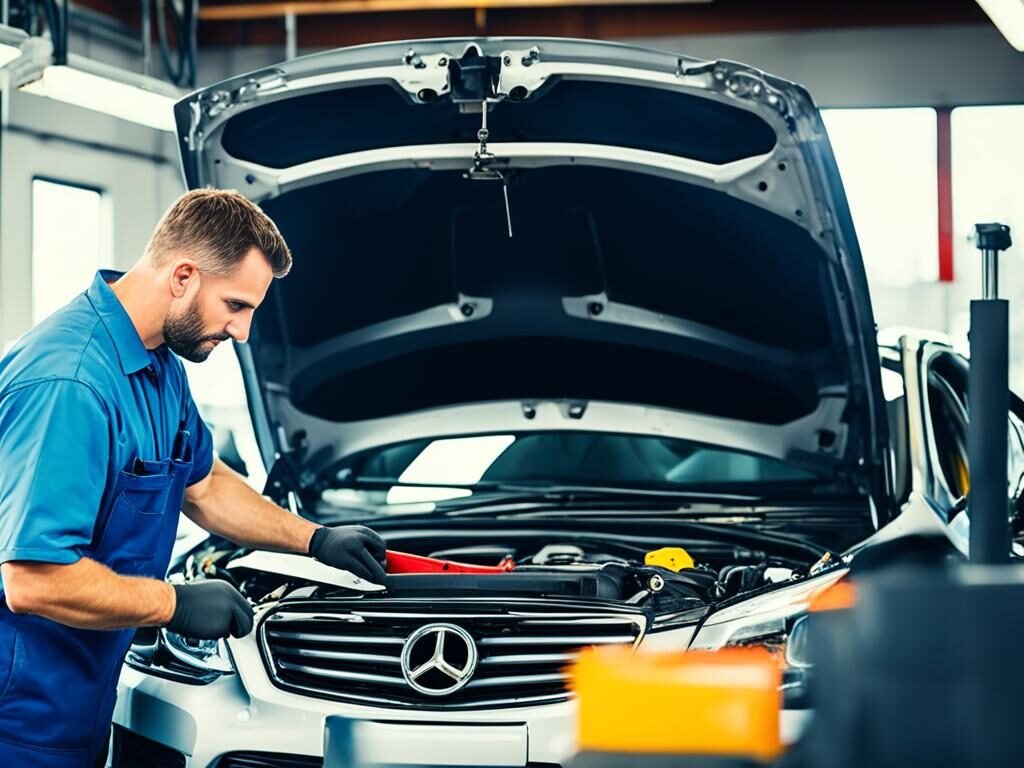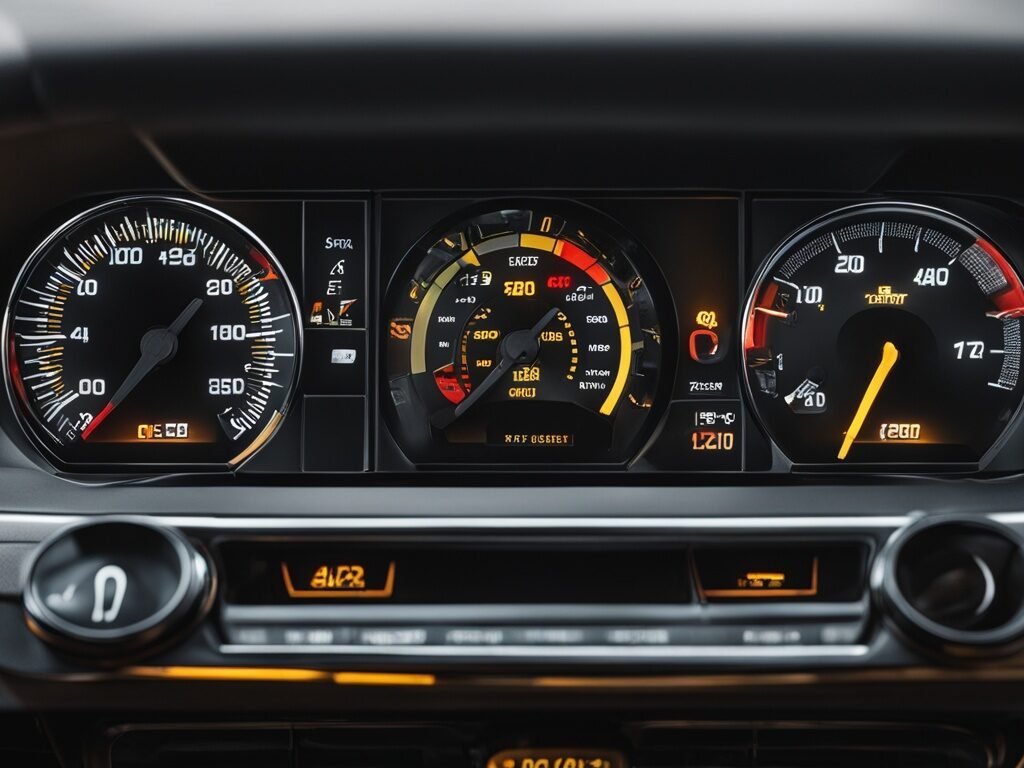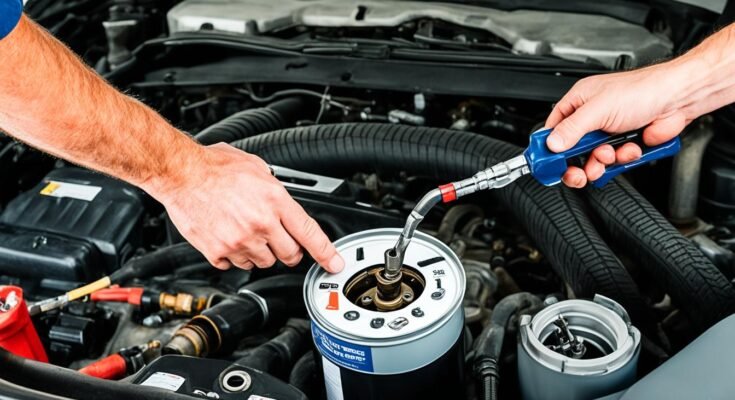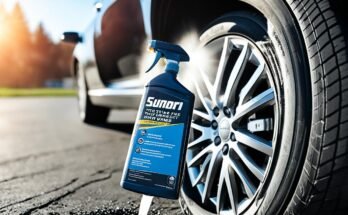We all want our cars to last and work well. Regular care is key. It can make your car live 25% longer and cut down on big surprises by 70%.
Maintenance is about more than just avoiding repairs. It keeps you safe too. For example, bad brakes cause a quarter of all crashes. By keeping your car in good shape, you’re not just saving cash. You’re also looking out for you and your family.
In this guide, we’ll cover 10 key tips for car care. From changing oil to caring for your tires, you’ll learn how to keep your ride rolling smoothly. Let’s get started on being a more careful car owner!
Understanding the Importance of Regular Vehicle Maintenance
Keeping your car maintained is vital. We don’t always see the worth of this. But taking care of your vehicle is key to making it last longer. Now, let’s look at why this is important.
Benefits of a well-maintained vehicle
A car that’s maintained well runs smoothly and longer. Fixing small problems early stops big issues later. So, you’ll have fewer breaks and a car you can trust. Also, a well-cared-for car uses fuel more efficiently, saving you cash.

Cost savings in the long run
Maintaining your car costs, but it’s worth it. Early issue spotting prevents expensive fixes later. For instance, changing oil often is cheaper than a new engine. It’s like healthcare for your vehicle.
Improved safety and reliability
Staying safe on the road is crucial. Regular upkeep means your brakes, tires, and more work well. This lowers the chance of accidents, keeping you and your passengers safe.
| Maintenance Task | Frequency | Car Care Benefits |
|---|---|---|
| Oil Change | Every 3,000-5,000 miles | Extends engine life, improves performance |
| Tire Rotation | Every 6,000-8,000 miles | Ensures even wear, extends tire life |
| Brake Inspection | Every 12,000 miles | Enhances safety, prevents costly repairs |
Staying on top of maintenance is more than just looking after your car. It’s about your safety, saving money, and having a reliable car. This approach makes car ownership smart and rewarding in many ways.
Car Maintenance Tips for Optimal Performance
Keeping your car running well is key for it to last longer and for your safety. We’ve made a list of top tips to keep it at its best.

Changing the oil regularly is vital. Most cars need this every 3,000 to 5,000 miles. Cars that use synthetic oil can go longer without a change. When you change the oil, it’s smart to check and maybe change the air filter.
Looking after your tires is very important too. Make sure to check the tire pressure once a month. Also, rotate your tires every 6,000 to 8,000 miles. This helps them wear evenly and improves how efficiently your car uses fuel.
A tune-up can really help your car work better. This involves looking at and maybe changing spark plugs. Also, checking belts and hoses. Adjusting the idle speed might also be needed. It’s good to do this about every 30,000 miles or as your car’s manual suggests.
Keeping the right fluids in your car is a must. Here’s a simple guide:
| Fluid | Check Frequency | Replacement Interval |
|---|---|---|
| Engine Oil | Monthly | Every 3,000-5,000 miles |
| Brake Fluid | Regularly | Every 2 years |
| Coolant | Every oil change | As per manufacturer |
| Transmission Fluid | Monthly | As advised by manufacturer |
Remember, these are general rules. Always check your car’s manual for what’s best for your car. Following these tips will help your car perform well and avoid expensive fixes in the future.
Essential Fluid Checks and Changes
Keeping up with fluids is key to keep your car running well. We’ll look at important fluids and how to manage them.
Oil and Filter Replacement
Oil is like blood to your car, making parts move smoothly and cleaning your engine. Change it every 3,000 to 5,000 miles or 6 months. Wait 10 minutes after stopping the engine to check the oil level right.
Coolant Level Inspection
Coolant stops your engine from getting too hot. Check it twice a year and change it every 2 to 3 years. A full flush every 50,000 miles keeps it working well.
Transmission Fluid Maintenance
Transmission fluid is vital for gear operation. Some cars never need a change. But for most, swap it every 50,000 to 100,000 miles.
| Fluid Type | Check Frequency | Replace/Flush Frequency |
|---|---|---|
| Engine Oil | Every 3,000-5,000 miles | Every 3,000-5,000 miles or 6 months |
| Coolant | Twice a year | Every 2-3 years or 50,000 miles |
| Transmission Fluid | With each oil change | Every 50,000-100,000 miles |
Keeping these fluids in check will make your car last longer and prevent expensive fixes later.
Tire Care and Maintenance
Looking after your tires well is key for safety and performance. This guide will help you understand how to keep your tires in top condition.
It’s important to check tire pressure regularly. Do this once a month and before any long drives. Low air in tires can lead to less efficient fuel use and wear out your tires quicker. While many cars have built-in tire pressure alerts, don’t skip on manual checks.
Changing the position of your tires on your car helps them wear evenly. Aim to rotate your tires every 5,000 to 7,000 miles. You can also do this every other time you change your oil. It’s an easy step that can make your tires last longer.
How deep your tire treads are affects how well you can grip the road. To easily check, use a penny. If you see the top of Lincoln’s head, it’s time for new tires. Keeping the right amount of tread means your car can stop better in the rain, cutting down on accidents.
Go for a wheel alignment check once a year or if your car pulls to one side. Bad alignment can make your tires wear out wrongly. Always align your new tires to get the most out of them.
| Maintenance Task | Frequency | Benefit |
|---|---|---|
| Tire Pressure Check | Monthly | Improved fuel efficiency |
| Tire Rotation | Every 5,000-7,000 miles | Even tire wear |
| Tread Depth Check | Monthly | Better traction |
| Wheel Alignment | Annually | Prevents uneven wear |
Don’t forget, good tire care isn’t just about helping your car run better. It’s about making sure you’re safer while driving. Keep up with these easy, important tasks to stay safe on the road.
Brake System Inspection and Maintenance
Your car’s brakes are vital for safety and need regular checking. It’s best to have them looked at once a year. But if you hear or feel anything odd, get them checked sooner. This can save you from expensive fixes and keeps you safe while driving.
Brake pad replacement
Brake pads help your car stop and are key to its safety. They usually last 30,000 to 70,000 miles, based on your driving. If you start to hear noise when you brake, it’s time for a check. Change the pads if they’re thinner than a quarter-inch for the best stopping power.
Rotor inspection
Rotors stop your car when the brake pads push against them. They need to be smooth and even to work right. If your car pulls to the side when braking, your rotors might be worn unevenly. Keeping your rotors in good shape makes your brakes last longer and your car safer.
Brake fluid check
Brake fluid keeps your brakes running, and it needs changing every two years. If the brake feels soft or you see a leak, that’s bad. Leaking brake fluid can cause serious braking problems and costs a lot to fix. So, it’s smart to check the brake fluid often to avoid these issues.



